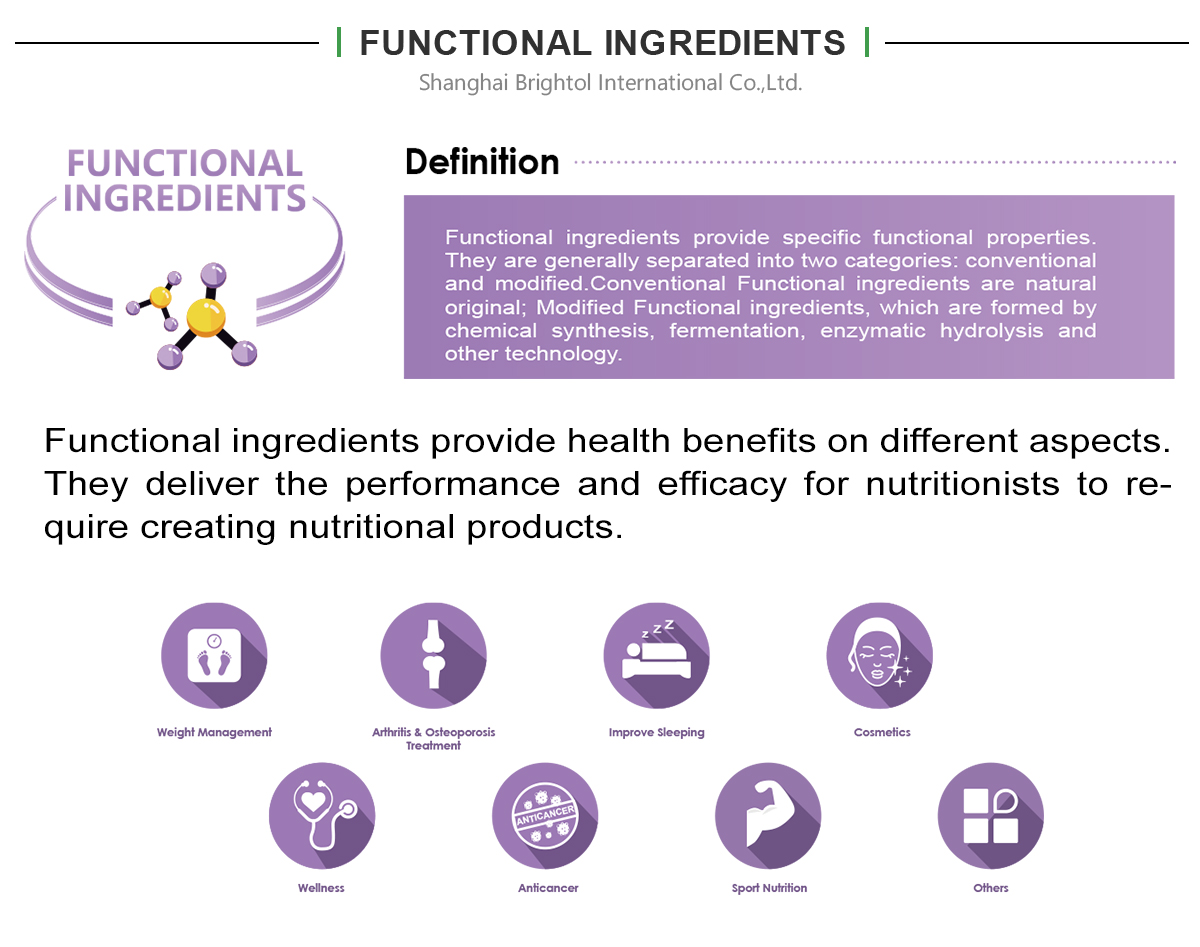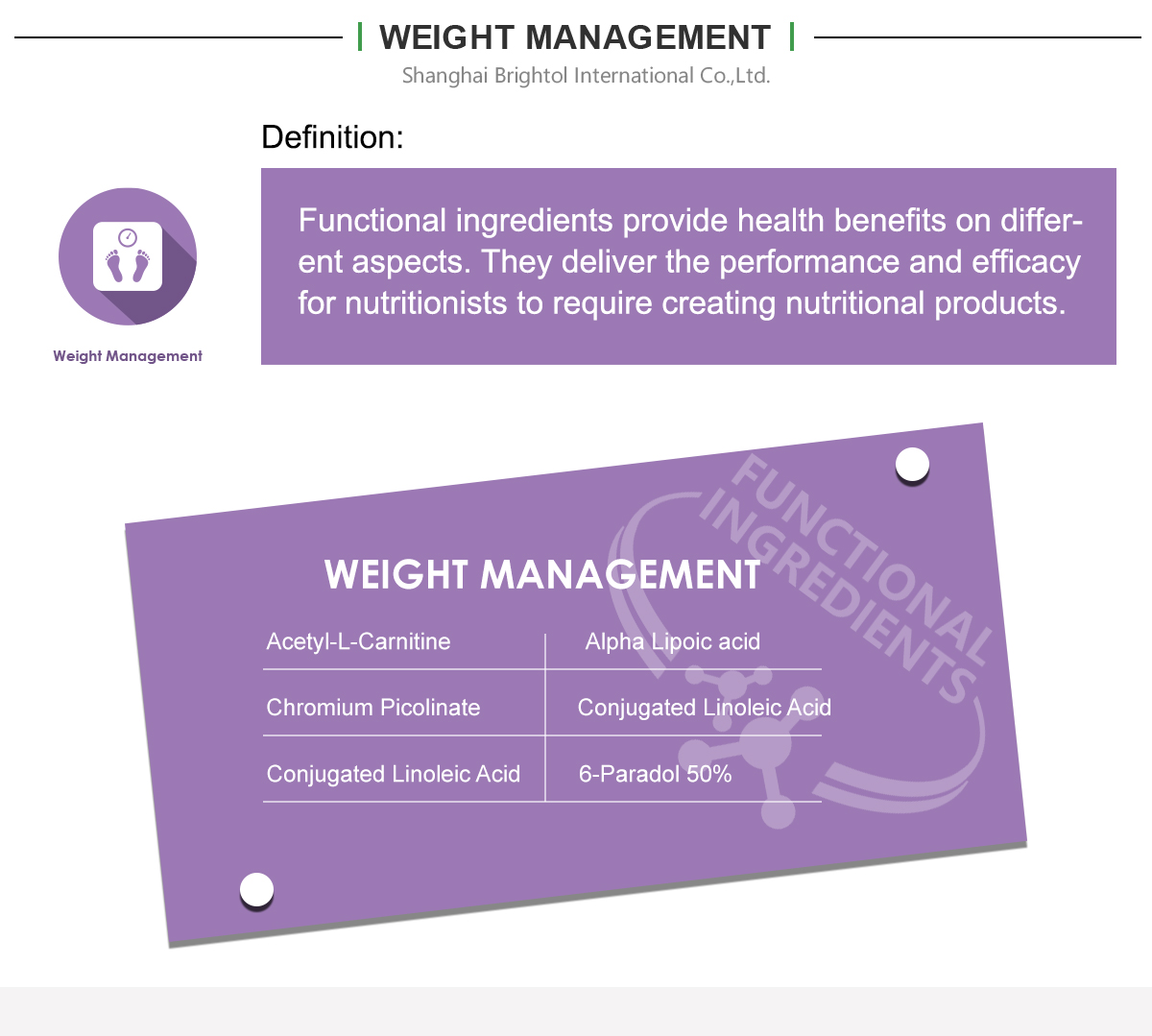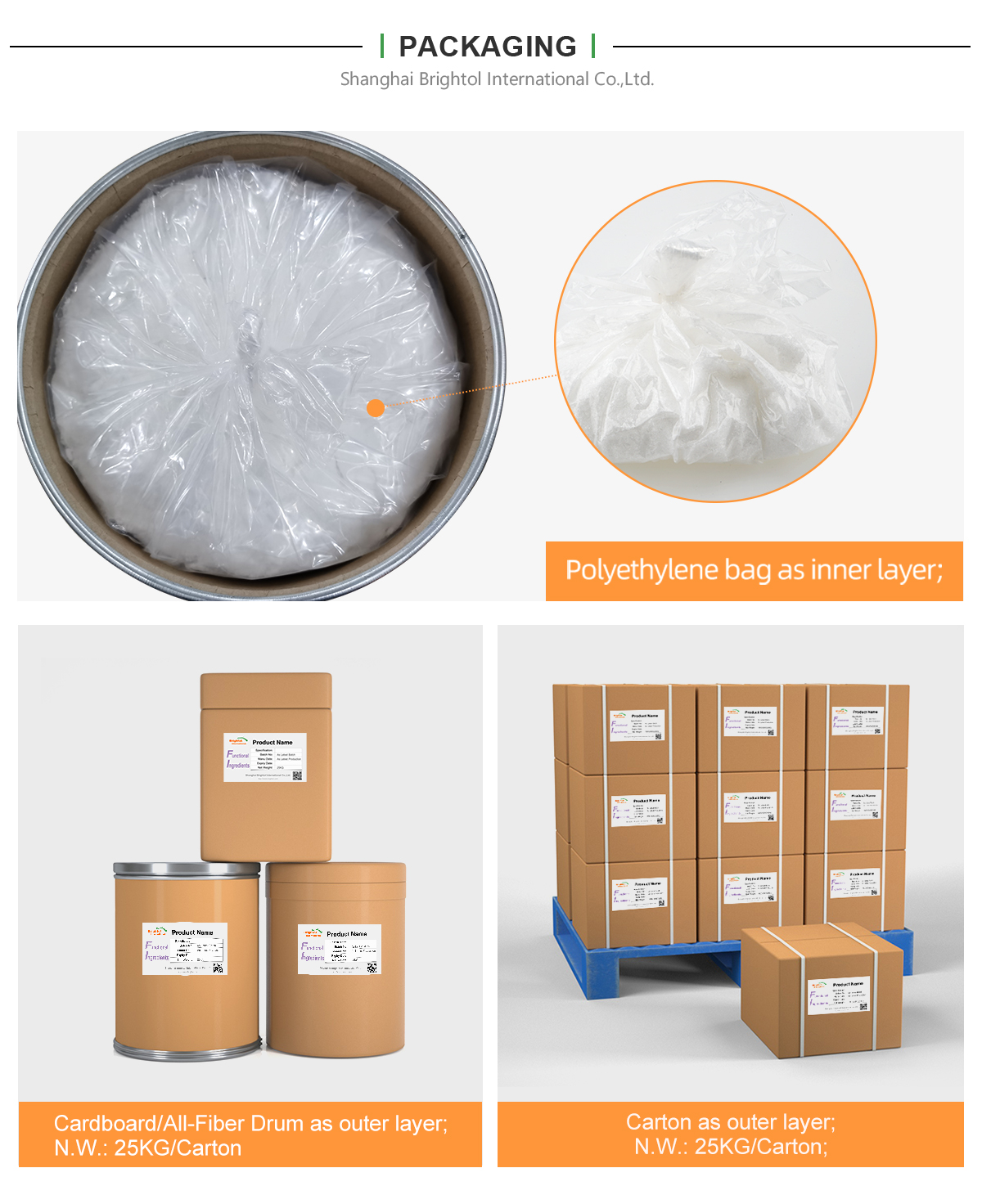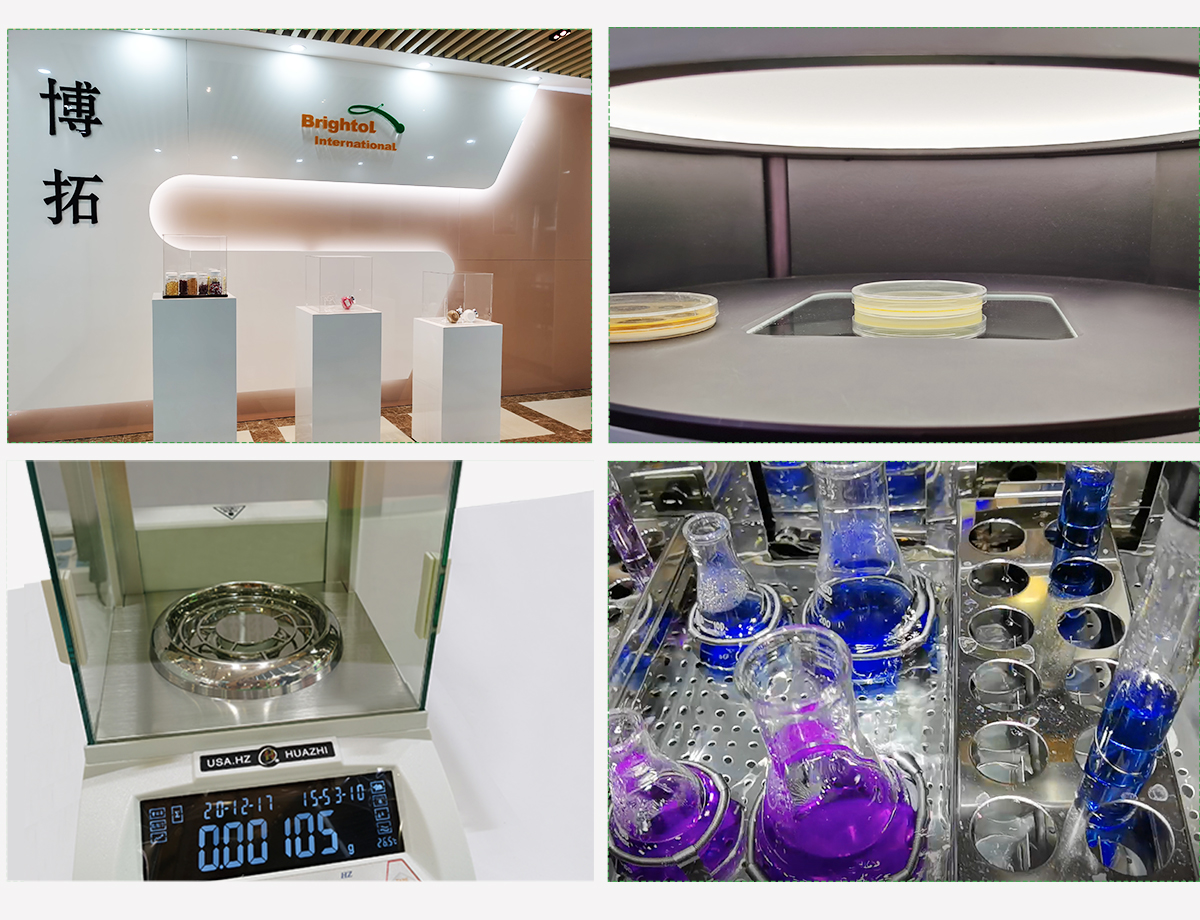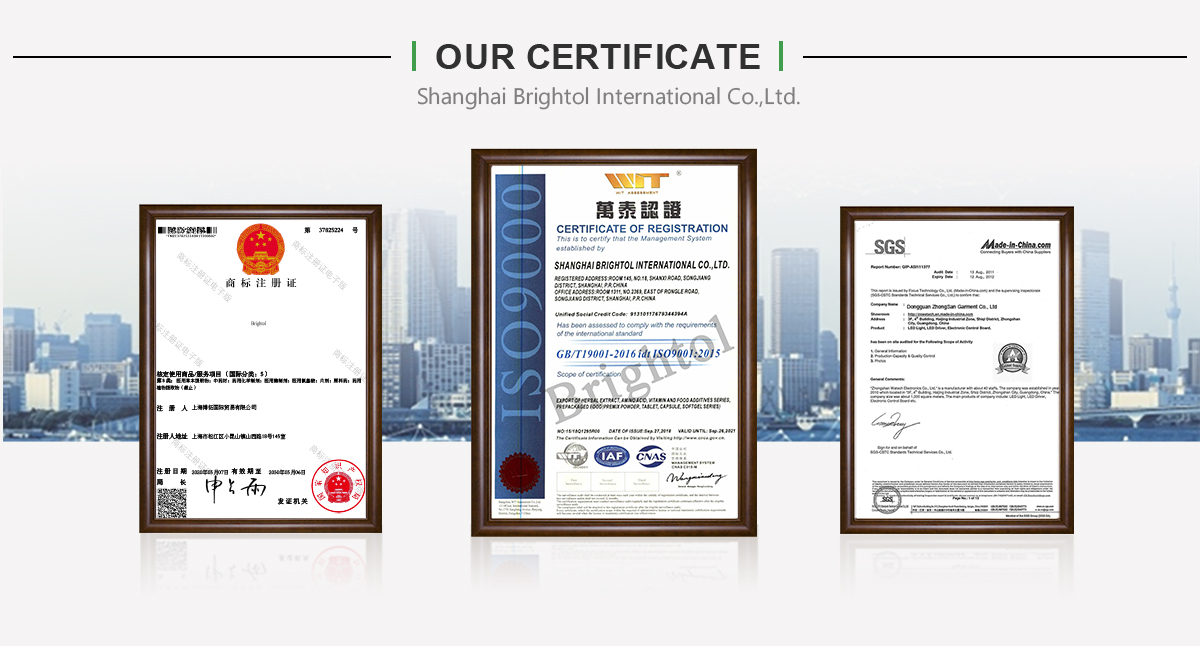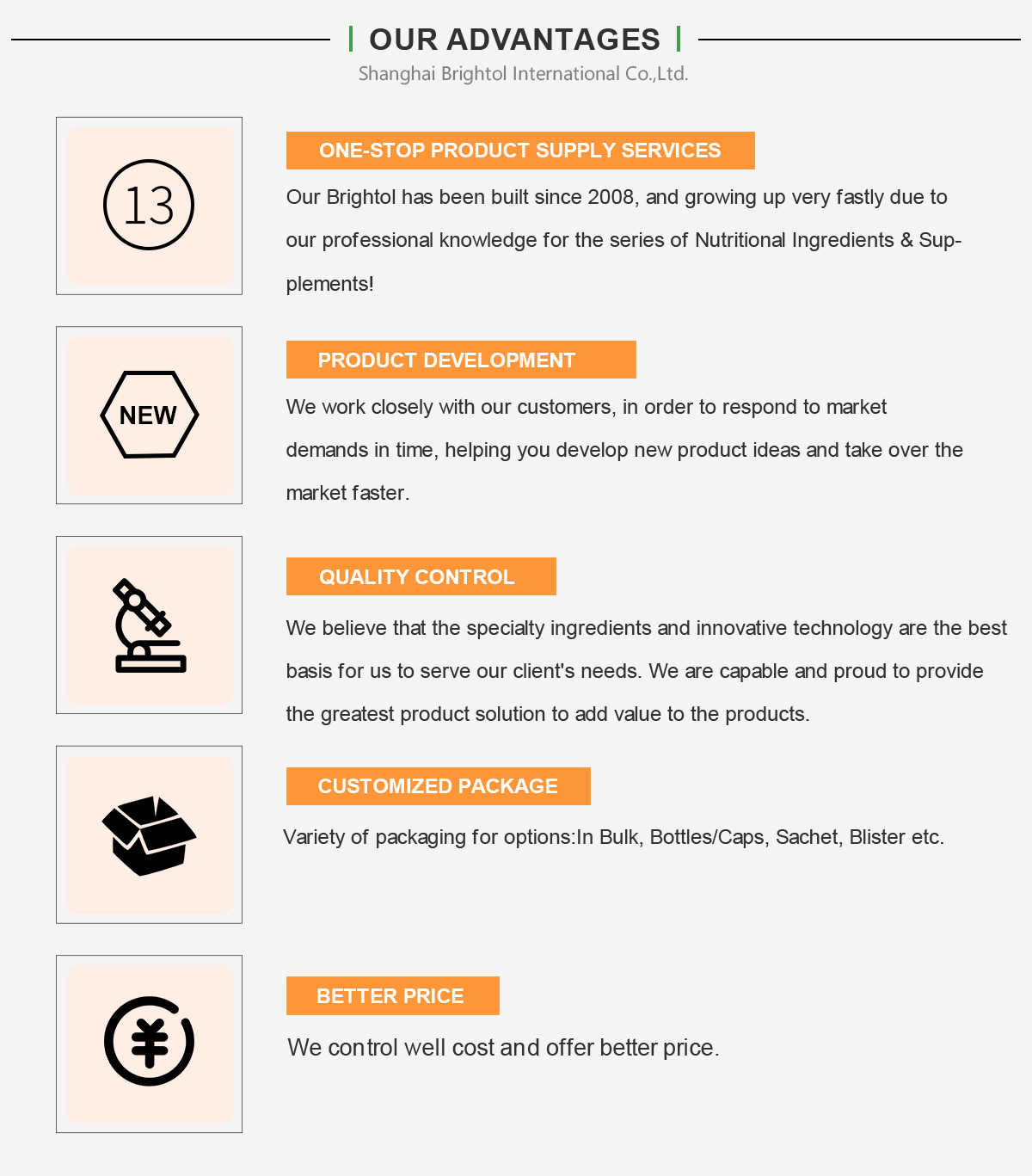

Product Name: Guanidinopropionic Acid
Synonyms: beta-Guanidinopropionic acid
Molecular Formula: C4H9N3O2
Molecular Weight: 131.13
CAS No.: 353-09-3
EINECS: 206-530-0
Description:
Guanidinopropionic acid (N-(aminoiminomethyl)-beta-alanine) is a creatine monohydrate analogue. Basically, it mimics the effects of insulin without the need for carbohydrates, as well as the positive glycemic properties of carbs, which include transporting nutrients, loading muscles with glycogen for fullness and vascularity, supplying readily accessible energy sources for intense training. As it does not need carbohydrates, the negative effects of carbs such as storing excess carbohydrate calories as fat and negatively affecting energy levels by causing rapid rises and falls in blood sugar levels, are eliminated......
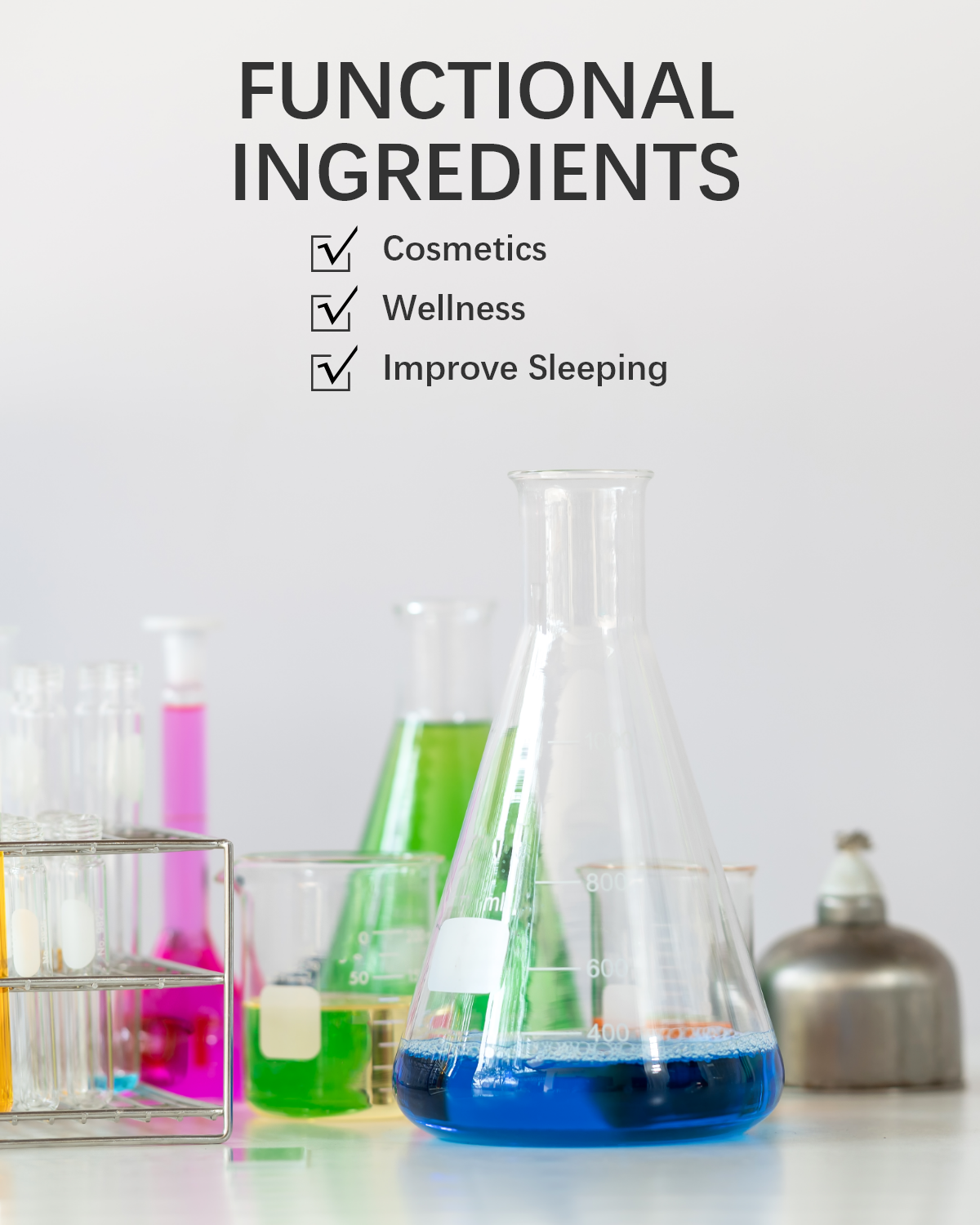

Product Name: Guanidinopropionic Acid
Synonyms: beta-Guanidinopropionic acid
Molecular Formula: C4H9N3O2
Molecular Weight: 131.13
CAS No.: 353-09-3
EINECS: 206-530-0
Description:
Guanidinopropionic acid (N-(aminoiminomethyl)-beta-alanine) is a creatine monohydrate analogue. Basically, it mimics the effects of insulin without the need for carbohydrates, as well as the positive glycemic properties of carbs, which include transporting nutrients, loading muscles with glycogen for fullness and vascularity, supplying readily accessible energy sources for intense training. As it does not need carbohydrates, the negative effects of carbs such as storing excess carbohydrate calories as fat and negatively affecting energy levels by causing rapid rises and falls in blood sugar levels, are eliminated. That is why guanidinopropionic acid is really popular to athletes, and it is a common ingredient in products containing creatine monohydrate, to the point that it has the potential to replace the famous insulin injection many bodybuilders have after exercising, which can be very dangerous.
In the case of those who are “insulin resistant”, since their blood sugar levels are not lowered by the release of a normal amount of insulin, they continue to release more insulin in the attempt to lower blood sugar levels and regulate the insulin/glucose balance. But when this insulin excess happens, carbohydrates are not efficiently metabolized. This means carbs are stored as body fat, instead of being used as energy or for loading muscles with glycogen. However, in those cases guanidinopropionic acid helps to regulate insulin function, which within the context of low body fat levels is an anabolic hormone. So it helps the body to make new muscle tissue from dietary protein and increases its uptake of creatine to muscle tissue.
Regarding creatine monohydrate “non-responders”, they may benefit from using a product containing guanidinopropionic acid. A non-response to creatine usually has little to do with creatine itself, as it is instead more related to the internal state of the body. Guanidinopropionic acid may be helpful in terms of helping the body to take up more creatine, which may result in non-responders getting the results they desire.
Benefits:
Guanidinopropionic acid decreased intracellular creatine, phosphocreatine, and ATP concentrations in all tissues studied. Studies reviewed showed that in muscle tissue this effect induced a shift from glycolysis to oxidative metabolism (conversion of biochemical energy from nutrients into adenosine triphosphate [ATP]), increased cellular glucose uptake and increased fatigue tolerance (endurance).
